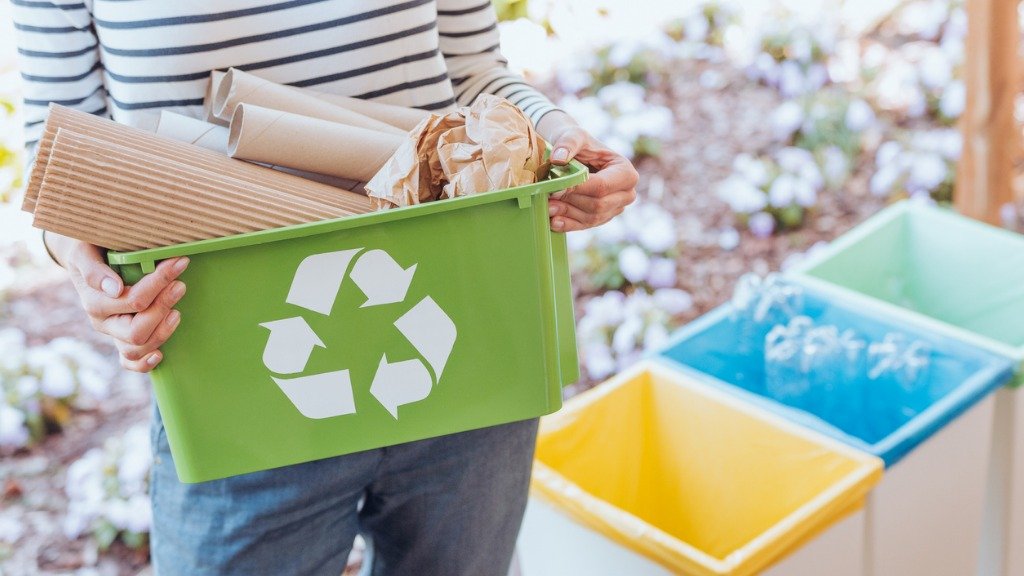Can recycling really solve our waste problem?

By 2020 the global recycling market is projected to reach £30bn, nearly doubling in size in five years from £18bn in 2015.
Yet, despite our best intentions, the true value of recyclable materials is not being realised. Cross-contamination of plastics and dirty packaging means that over half the items going into the recycling bin aren’t recycled.
Recyclable materials are very valuable in their pure state but the cost and difficulty of separating mixed recycling make it uneconomical. With mounting public and government pressure, something needs to change to stem the tide of used packaging and products ending up in a landfill.
That change is coming, albeit slowly. In fact, in January 2019, UK Prime Minister Theresa May pledged to eliminate the UK’s plastic waste by 2042. How can the recycling industry adapt to these growing pressures and become a profitable industry?
Achieving 100% Closed-loop Recycling
Currently, when used-materials are recycled, they tend to be made into ‘lesser’ products. A plastic bottle, for example, may be processed into pack tape for example which is then disposed of in landfill. So, even when recycling happens, it often only delays the inevitable.
A truly green initiative, however, would move towards a 100% closed-loop recycling system. That is, a system where a recyclable product is transformed back into its original form e.g. a plastic bottle is remade into a plastic bottle or an item of equal value many times before it’s disposed of.
Separating mixed plastics, however, is difficult and expensive even on an industrial scale and a small amount of the wrong type of plastic can contaminate an entire batch. Just .05 kg of PVC plastic within 1,000 kg of PET flakes can cause it to become brittle and yellowish in colour.
Education has only gone so far. Despite increased familiarity with recycling practices majority of people in the West are still unsure over which items can be recycled.
As such, the contamination issue has, to-date, been insurmountable for the recycling industry. So, while I think that in the next 20 years we will have a 100% closed-loop recycling system, there are a number of other technologies and processes that need to be implemented before closed-loop recycling is achievable. These will tackle the issue from both sides, empowering consumers while developing the capabilities of the de-manufacturing economy.
The De-Manufacturing Economy
We predict that within 10 years, the businesses of the world, starting with FMCG, will be able to deliver on their extended producer responsibility (EPR).
This means that all product prices will include the environmental costs of used-packaging being sent to landfill. If the product’s used-packaging is identified and closed-loop recycled the EPR will be delivered. EPR will incentivise more sustainable production practices, product longevity and maximise close-loop recyclability. Technology will both identify the packaging and via closed-loop recycling deliver EPR. Once operating, EPR legislation can be enacted.
Within 20 years, we predict that there will be a closed-loop recyclability index (CLR) displayed on every product. Just like ingredient contents in food, the CLR will influence a consumer’s purchasing decision and further educate the public.
All this will drive change in consumer purchasing behaviours, promote the growth of the de-manufacturing industry, and help to reduce de-manufacturing costs. By 2039, the de-manufacturing economy will approach the same level of employment as the financial services industry and will employ as many designers and robot operators as the manufacturing industry.
Consumer Power
Over the 10-20 there’s been a green revolution. People are now more aware than ever about the effect their waste has on the environment and innovative new technologies are offering solutions to key environmental challenges.
However, recent documentaries, such as the BBC’s Blue Planet II, demonstrate just how far we still have to go when it comes to recycling. Many people no longer trust curbside collection but don’t know what else they can do.
The simple answer is to let the public take a more active part in the recycling process. Instead of confusedly separating items and hoping for the best, consumers should be empowered to guarantee 100% correct segregation of different plastics, for example, and ensure they are delivered to manufacturers in a pure form, ready for closed-loop recycling.
This is where technological innovations, like ReCircle, will play a major role. ReCircle is an appliance for home or business that will use a sensor to identify and guarantee the correct separation of different plastic, glass, metal, etc. The appliance will then wash and grind the materials for separate storage in the base. The high-purity materials are then picked up and the consumer reimbursed for the weight of recycled materials.
Appliances like ReCircle are a key step towards achieving 100% closed-loop recycling and help empower households and businesses to make purchasing decisions which take into account the product’s life cycle assessment and closed-loop recyclability.
In 20 years, every individual, business, hospital, factory, building site, bar and restaurant, education institute, airport and any other venue in the world will take responsibility for the separation and cleaning of their recyclable material.
Technological Innovations
A number of existing technologies will be re-engineered to help both industrial and consumer recyclers. We predict that these technologies will focus on improving the ease and affordability of high-purity recycling.
The first and arguably most important innovation will be a further and continuing reduction in the cost and size of material sensors. Currently, sensors are relatively expensive because they can sense multiple substances. Exception sensors, detecting one substance only, will be smaller, simpler and when mass-produced very much cheaper.
Next, we need to reduce the size of the grinding, granulating and compacting equipment. More compact appliances will allow consumers to process their recycling in their own home or business.
Finally, AI, machine learning and robotics will continue to improve the performance, cost and efficiency of these technologies. Combined with the circular economy and de-manufacturing, I can envision a world where nearly all used-materials will be 100% closed-loop recycled. In 20 years’, recycling appliances will be an intrinsic part of our life, just like refrigerators today.




